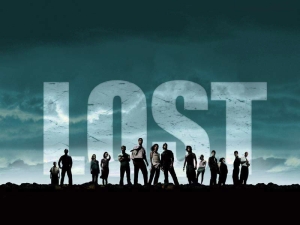My brother Gary was the one who got me interested in cult TV in the first place. I saw him watching Buffy‘s ‘Hush’ during its original airing when I was 7 and was hooked straightaway. For the next three years, I watched the series religiously with him. This opened the door to other cult series – Buffy’s spin-off series Angel, spy drama Alias, even the ridiculously convoluted yet captivating island drama Lost. On Gary’s recommendation, I saw all these series as they aired and enjoyed them as popcorn TV.
It was Lost that turned me from a casual viewer into one more interested in discussing and analysing what was going on. Whilst it started off fairly straightforward, by Season 5 there was a complex time travel storyline placed on top of a handful of other mysteries. What started off as a quick Google to understand the plot led me to online forums full of people discussing what was going on, trying to guess what would happen next, and posting pages of theories on how the series would end.
Gary watched Buffy from season 3 onwards, because, as he says: “I’d read so many good reviews and heard so much about it, I wanted to see what the fuss was about.” As soon as the third season finished, he bought the DVDs of the first two seasons he had missed and caught up on them.
“I’m the same as you, in that Buffy was what got me into similar series,” he says. “I don’t look into them as much as other people do. Obviously I watch them trying to pick up clues and have my own theories about what’s going on, but I don’t post them online or anything. I would if I had more time though.”

Image from Natalia’s Blog: http://sites.psu.edu/rclnataliasolar/2014/02/05/the-vampire-diaries/
Gary, from Northamptonshire, thinks cult TV really took off with people in his generation (he’s now 33), and has filtered its way down to people now in their late teens and early 20s. Sam Wright, a 21-year-old Sheffield Hallam university student agrees. She caught re-runs of One Tree Hill on E4 when she was 15, and that opened the door to shows like Gossip Girl and 90210, which then lead on to darker series like The Vampire Diaries. “I think when you get invested into one series, it’s just natural to start watching more – either because of the same actors appearing or similar plots.”
“The internet created visibility for cult series”
When discussing why cult TV launched in to popularity, Dr Ruth Deller argues a similar point to Matthew Pateman in an earlier post on this site: “The internet created visibility for these series, and gave them a wider reach. Everyone could contact everyone to discuss them.”
It’s not just America that has these series any more – since the revival of Doctor Who in 2005 with Christopher Eccleston, the UK has developed its own collection of series with cult followings: for example Sherlock, Life on Mars and Broadchurch. Even Downton Abbey, which on the surface is just another period drama, has developed a cult following online. Ruth, who is based at Sheffield Hallam university, argues that analysis isn’t confined to cult series any more: “Sites like Digital Spy have forums for people to discuss everything. Fans are there on the Big Brother forums analysing the editing of the programme and why different things are shown.”
An expert in fandom, she argues that TV has trends, and the original cult series were one of those trends. Sam Wright agrees: “My younger sister isn’t interested at all in the darker American series. She’s more interested in Keeping Up With The Kardashians and TOWIE… I know it’s stereotyping but in general these kinds of series are far more popular nowadays. I think cult TV was a hit with my generation because of the time it happened, just as the Internet came around.”
Sam also sees another possible future for cult TV: “All the new series are getting more complicated. It takes more effort to understand what’s going on in the shows – they have bigger casts of characters, more story lines going on all at once… Every series is trying to out-do the others and I think cult TV shows might carry on this trend and just get even more in-depth as time goes on.”
So what’s to become of future cult series? Will they diminish in popularity, or will they continue to grow and get more and more complex, following on from Lost? Share your thoughts in the comments section below – in particular, let us know what got you interested in cult TV!
